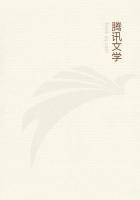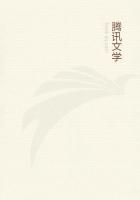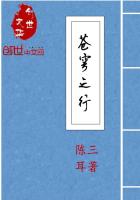DUCHESSE. Goe fetch me pen and inke.
MAID. I will Madam.
Exit Maid.
DUCHESSE. That I may write unto my dearest Lord.
Sweet Mugeroune, tis he that hath my heart, And Guise usurpes it, cause I am his wife:
Faine would I finde some means to speak with him But cannot, and therfore am enforst to write, That he may come and meet me in some place, Where we may one injoy the others sight.
Enter the Maid with Inke and Paper.
So, set it down and leave me to my selfe.
O would to God this quill that heere doth write, She writes.
Had late been plucks from out faire Cupids wing:
That it might print these lines within his heart.
Enter the Guise.
GUISE. What, all alone my love, and writing too:
I prethee say to whome thou writes?
DUCHESSE. To such a one, as when she reads my lines, Will laugh I feare me at their good aray.
GUISE. I pray thee let me see.
DUCHESSE. O no my Lord, a woman only must Partake the secrets of my heart.
GUISE. But Madam I must see.
He takes it.
Are these your secrets that no man must know?
DUCHESSE. O pardon me my Lord.
GUISE. Thou trothles and unjust, what lines are these?
Am I growne olde, or is thy lust growne yong, Or hath my love been so obscurde in thee, That others need to comment on my text?
Is all my love forgot which helde thee deare?
I, dearer then the apple of mine eye?
Is Guises glory but a clowdy mist, In sight and judgement of thy lustfull eye?
Mor du, were not the fruit within thy wombe, On whose encrease I set some longing hope:
This wrathfull hand should strike thee to the hart Hence strumpet, hide thy head for shame, And fly my presence if thou look'st to live.
Exit [Duchesse].
O wicked ***e, perjured and unjust, Now doe I see that from the very first, Her eyes and lookes sow'd seeds of perjury, But villaine he to whom these lines should goe, Shall buy her love even with his dearest bloud.
Exit.
Enter the King of Navarre, Pleshe and Bartus, and their train, with drums and trumpets.
NAVARRE. Now Lords, since in a quarrell just and right, We undertake to mannage these our warres Against the proud disturbers of the faith, I meane the Guise, the Pope, and King of Spaine, Who set themselves to tread us under foot, And rend our true religion from this land:
But for you know our quarrell is no more, But to defend their strange inventions, Which they will put us to with sword and fire:
We must with resolute minces resolve to fight, In honor of our God and countries good.
Spaine is the counsell chamber of the pope, Spaine is the place where he makes peace and warre, And Guise for Spaine hath now incenst the King, To send his power to meet us in the field.
BARTUS. Then in this bloudy brunt they may beholde, The sole endevour of your princely care, To plant the true succession of the faith, In spite of Spaine and all his heresies.
NAVARRE. The power of vengeance now implants it selfe, Upon the hauty mountains of my brest:
Plaies with her goary coulours of revenge, Whom I respect as leaves of boasting greene, That change their coulour when the winter comes, When I shall vaunt as victor in revenge.
Enter a Messenger.
How now sirra, what newes?
MESSENGER. My Lord, as by our scoutes we understande, A mighty army comes from France with speed:
Which is already mustered in the land, And meanesto meet your highnes in the field.
NAVARRE. In Gods name, let them come.
This is the Guise that hath incenst the King, To leavy armes and make these civill broyles:
But canst thou tell me who is their generall?
MESSENGER. Not yet my Lord, for thereon doe they stay:
But as report doth goe, the Duke of Joyeux Hath made great sute unto the King therfore.
NAVARRE. It will not countervaile his paines I hope, I would the Guise in his steed might have come, But he doth lurke within his drousie couch, And makes his footstoole on securitie:
So he be safe he cares not what becomes, Of King or Country, no not for them both.
But come my Lords, let us away with speed, And place our selves in order for the fight.
Exeunt.
Enter [Henry] the King of France, Duke of Guise, Epernoune, and Duke Joyeux.
KING. My sweet Joyeux, I make thee Generall, Of all my army now in readines, To march against the rebellious King Navarre:
At thy request I am content thou go'st, Although my love to thee can hardly suffer't, Regarding still the danger of thy life.
JOYEUX. Thanks to your Majestie, and so I take my leave.
Farwell my Lord of Guise and Epernoune.
GUISE. Health and harty farwell to my Lord Joyeux.
Exit Joyeux.
KING. How kindely Cosin of Guise you and your wife Doe both salute our lovely Minions.
He makes hornes at the Guise.
Remember you the letter gentle sir, Which your wife writ to my deare Minion, And her chosen freend?
GUISE. How now my Lord, faith this is more then need, Am I to be thus jested at and scornde?
Tis more then kingly or Emperious.
And sure if all the proudest kings beside In Christendome, should beare me such derision, They should know I scornde them and their mockes.
I love your Minions? dote on them your selfe, I know none els but hordes them in disgrace:
And heer by all the Saints in heaven I sweare, That villain for whom I beare this deep disgrace, Even for your words that have incenst me so, Shall buy that strumpets favour with his blood, Whether he have dishonoured me or no.
Par la mor du, Il mora.
Exit.
KING. Beleeve me, Epernoune this jest bites sore.
EPERNOUNE. My Lord, twere good to make them frends, For his othes are seldome spent in vaine.
Enter Mugeroun.
KING. How now Mugeroun, metst thou not the Guise at the doore?
MUGEROUN. Not I my Lord, what if I had?
KING. Marry if thou hadst, thou mightst have had the stab, For he hath solemnely sworne thy death.
MUGEROUN. I may be stabd, and live till he be dead, But wherfore beares he me such deadly hate?
KING. Because his wife beares thee such kindely love.
MUGEROUN. If that be all, the next time that I meet her, Ile make her shake off love with her heeles.
But which way is he gone? Ile goe take a walk On purpose from the Court to meet with him.
Exit.
KING. I like not this, come Epernoune Lets goe seek the Duke and make them freends.
Exeunt.















